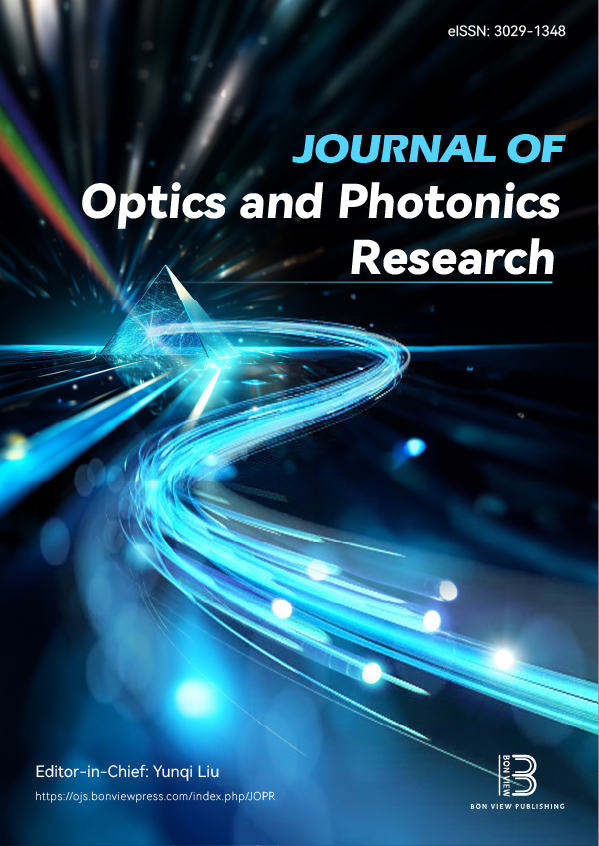Spectral Limit of the Optical Behavior Between Film and Substrate for a Fluorine-Doped Tin Oxide (FTO) Transparent Conductive Layer
DOI:
https://doi.org/10.47852/bonviewJOPR52025408Keywords:
optical constants, extinction coefficients, transparent conductors, thin film layers, complex electric fieldsAbstract
The optical constants of a fluorine-doped tin oxide (FTO) transparent conductive layer (of 400 nm thickness), deposited over a glass (G) substrate, were determined from the collimated transmittance (T) and reflectance (R) optical measurements of a bilayer FTOG sample in the solar wavelength range (from 250 nm to 2500 nm). The three-extinction matching requirement (3εMR) phenomenon was used as a feedback system to validate the accuracy of the optical constants results, obtained by fitting to the collimated T and R solutions of the four-flux model (4FM). The same extinction coefficients (ε) were observed than the obtained when computing light fluxes at the interfaces and substituting into the 4FM collimated differential equations (CDE). The compression of the wavelength of the incident light inside G and FTO layers was validated by computing ε from optical constants. Despite a layer is considered a thin film when its thickness is lower than the wavelength of incident light beam, and a substrate when higher, the 3εMR allowed to determine the spectral limit of the FTO layer behavior, as a substrate and as a film, at 1200 nm (instead of at 400 nm, i.e., three times higher). FTO layer behaves as a substrate, for the shorter wavelength range of the solar spectrum (SWRSS), and as a film, for the longer wavelength range of the solar spectrum (LWRSS). The thickness gradients of the forward and backward (for&back) collimated light fluxes were determined at the glass substrate of the G and FTOG samples and for the SWRSS of the FTO as a substrate layer. Then, for the LWRSS, the thickness gradients for the complex magnitude and phase (Bode plots) of for&back electric fields of the FTO film layer have been spectrally determined and represented by means of imaginary versus real parts (Nyquist plots) depending on wavelength.
Received: 12 February 2025 | Revised: 9 May 2025 | Accepted: 29 May 2025
Conflicts of Interest
The author declares that he has no conflicts of interest to this work.
Data Availability Statement
Data sharing is not applicable to this article as no new data were created or analyzed in this study.
Author Contribution Statement
David Barrios-Puerto: Conceptualization, Methodology, Software, Validation, Formal analysis, Investigation, Resources, Data curation, Writing – original draft, Writing – review & editing, Visualization, Supervision, Project administration.
Downloads
Published
Issue
Section
License
Copyright (c) 2025 Author

This work is licensed under a Creative Commons Attribution 4.0 International License.


